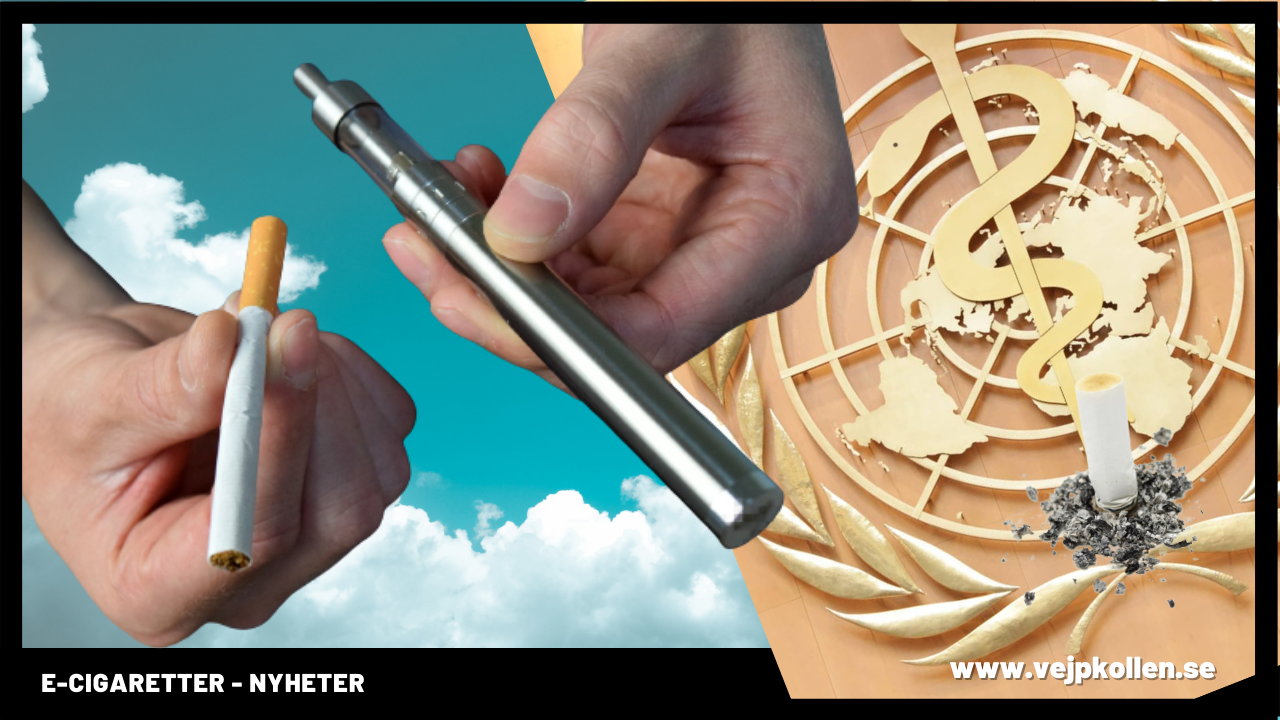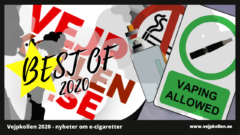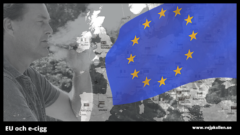"Make smoke-free nicotine products part of the strategy to improve global health. And stop protecting the cigarette trade". This is the message, from 100 researchers, health scientists and doctors, in an open letter to the WHO and the participants of the upcoming tobacco control summit in November.
The war over e-cigarettes and harm reduction is escalating. Ahead of the WHO summit in November, 100 health researchers are calling on the World Health Organisation to change its approach to alternative technologies for using nicotine.
"There is now convincing evidence that smokeless nicotine products are significantly less harmful than cigarettes. There are also clear signs that various technologies, which have emerged over the last 15 years, may displace cigarette use, not only for individuals, but also at the population level, in the near future." the 100 health scientists write.
Refers to harm reduction in other fields.
The group, made up of researchers, social scientists, psychologists, health workers and doctors from around the world, cites products such as e-cigarettes, Swedish snus, heat-not-burn and nicotine pouches as good examples of innovative technologies that can curb smoking worldwide.
"Harm reduction is practised in many areas of public health, in the fight against illicit drugs, sexual health and HIV. The Framework Convention on Tobacco Control also recognises harm reduction as a tool in tobacco policy. For hundreds of millions of people who are struggling to quit smoking, but want to continue using nicotine, these products represent another pathway away from the deadliest way to use nicotine," the group writes.
Targeted information to smokers
They refer to a number of major independent reports that summarise the benefits of harm reduction policies compared to harsh bans and restrictions. Heavyweight institutions such as British Medical Association, together with Public health authorities The UK has long encouraged smokers to switch from smoking tobacco to smoke-free alternatives such as e-cigarettes. Now the 100 experts want to see a similar development at the WHO.
"While the science already shows that vejping increases the chances of quitting smoking, a deliberate policy of informing smokers about the relative risks of harm between vejping and smoking would greatly increase the potential of e-cigarettes. This is the opposite of what the WHO is doing today." the group writes.
Follow the science - not the tobacco companies
The WHO has previously been criticised for criticised for their campaigns to target e-cigarettes and other alternative nicotine products in the same way as smoking tobacco. According to the WHO's assessment, tobacco harm reduction is just a marketing ploy by tobacco companies, with no support from research. This is far from being a scientific approach to the issue, according to MEPs.
"Of course, we have to be aware that tobacco companies are also involved in the new technologies. And we should be careful. But we must also take into account the extensive scientific evidence we have today. We must not let excessive caution or uncertainty deny smokers promising alternatives that lead away from the combustible products that we know with certainty are deadly." the group writes.
WHO protects the cigarette trade
They also point out that the WHO's stance and policy on the issue is in fact strengthening cigarette sales worldwide.
"WHO routinely advocates for outright bans on smokeless alternatives to cigarettes or regulation and taxation of smokeless products equivalent to cigarettes. The danger of this is that it creates regulatory protection for the cigarette trade. It causes harm by increasing, rather than decreasing, smoking," the group writes.
Calls for an independent review
The group provides the WHO, but also the countries that have pledged to implement the WHO Framework Convention on Tobacco Control (FCTC), with six proposals to reduce the harm caused by tobacco smoking worldwide:
- Implement tobacco harm reduction as part of the strategy to improve global health, in particular for smokers and those at risk of becoming smokers.
- Require the WHO in its policy analysis to properly assess the benefits of alternative nicotine products for smokers or prospective smokers, including young people. At the same time, evaluate the risks to users and non-users of these products.
- Require that all policy proposals, especially bans, take into account the risks of unintended consequences. This includes risks of increased smoking and other negative reactions.
- Apply Article 5.3 of the FCTC to address the influence of the tobacco industry. But don't let this become a barrier to products with a reduced risk profile and public health benefits. Nor let it prevent critical assessment of industry data strictly on its scientific merits.
- Make the FCTC negotiations more open to stakeholders with a harm reduction perspective, including consumers, public health experts and some companies with significant specialised knowledge not found in traditional tobacco control work.
- Appoint an independent review of the WHO and FCTC approach to tobacco policy in the context of the Sustainable Development Goals. Such a review should examine: the interpretation of available research, the quality of the WHO Policy Council, the influence, responsibility and governance of special interests. The Independent Panel on Pandemic Preparedness and Response (IPPPR), initiated to evaluate the response to the COVID-19 pandemic, offers such a model.
Big meeting in November
The WHO has not yet commented on the petition. The letter has been sent to governments and politicians in all countries participating in the upcoming WHO meeting on the FCTC (Framework Convention on Tobacco Control), also known as COP9. Among the 100 signatories are some Nordic researchers such as Lars Ramberg from Sweden and Karl E Lund from Norway. Several internationally recognised names in the tobacco control field, such as Clive Bates, Robert West, David Nutt, Ethan Nadelman and Clifford E. Douglas, have also signed the petition.





Our wimps of politicians have not realised the opportunity e-cigs offer them.
Now there is a perfectly good alternative, with very low levels of harm, so why don't they take the opportunity to ban smoking tobacco and refer to the alternative?
Talk about improved public health!